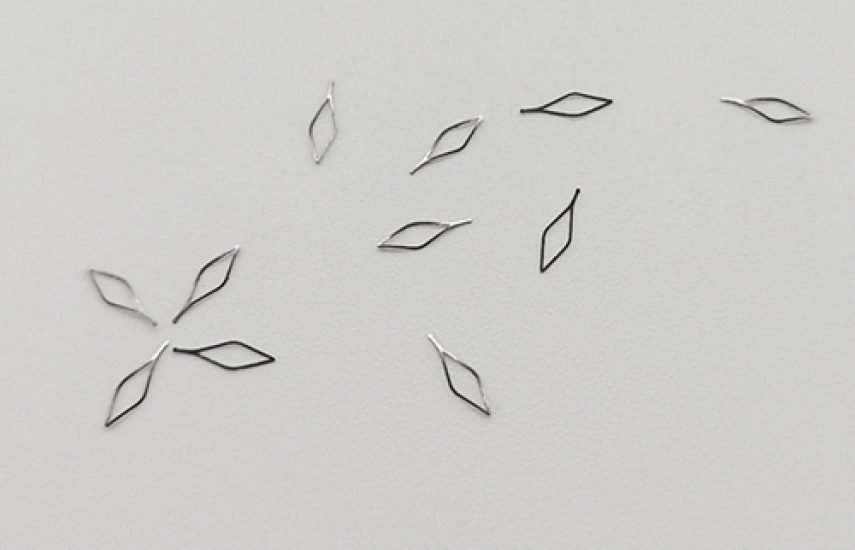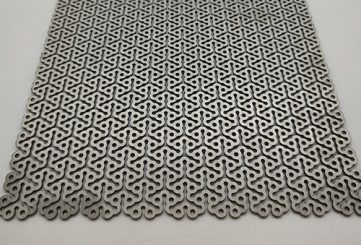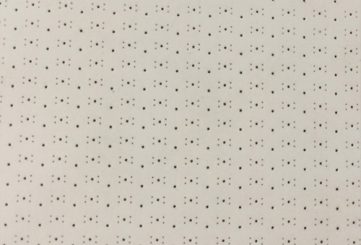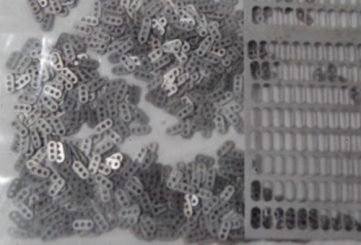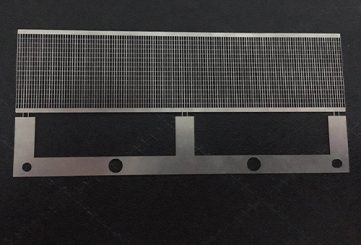L1.2mm Bracket Rod
L1.2mm Bracket Rod – Precision Rods for Orthopedic and Medical Implants
The L1.2mm Bracket Rod is a high-precision medical component designed for orthopedic implants and medical devices. Crafted using advanced five-axis laser cutting technology, this rod delivers exceptional accuracy, durability, and a burr-free finish. Made from medical-grade materials such as stainless steel, Nitinol, or Cobalt-Chrome alloys, it ensures reliable performance in demanding surgical environments. The laser-cut rod features smooth surfaces and precise geometries, minimizing tissue trauma and providing robust structural support. Ideal for applications like bone fixation and spinal stabilization, this rod meets the stringent requirements of modern healthcare.
Key Features:
- Ultra-Precise Design: Seam width of 18–30 µm with machining accuracy of ≤±10 µm for intricate structures.
- Burr-Free Finish: Smooth surfaces ensure safe use and minimal tissue interaction in medical applications.
- Material Versatility: Compatible with high-performance alloys for diverse medical and orthopedic needs.
- High Durability: Engineered for corrosion resistance and long-term stability in surgical environments.
- Automated Production: Continuous feeding system ensures high efficiency and consistent quality.
- Biocompatibility: Meets standards for safe interaction with human tissues.
Certification and Standards:
Certified under ISO 9001, ISO 13485, and ISO 10993 for quality management and biocompatibility. Compliant with CE and FDA regulations for medical device safety and efficacy.
Magnesium alloy:
Magnesium, a lightweight (1.74 g/cm³) and biodegradable metal, is ideal for temporary medical implants like stents and orthopedic screws. Alloys such as WE43 or JDBM offer tensile strength (200–420 MPa) and controlled degradation (6–24 months), safely dissolving into non-toxic byproducts (Mg²⁺ ions). Its biocompatibility (ISO 10993) and ability to support tissue regeneration make it suitable for cardiovascular and bone repair applications. Magnesium’s elastic modulus closely matches bone, minimizing stress shielding in orthopedic uses.
Stainless Steel SUS304:
Medical-grade SUS304 stainless steel (austenitic chromium-nickel alloy), offering excellent corrosion resistance and mechanical properties.
- Biocompatibility: Low risk of allergic reactions or toxicity, ideal for direct tissue contact in medical procedures.
- Mechanical Properties: High tensile strength (approximately 505 MPa) and elongation (up to 40%), providing flexibility without brittleness.
- Surface Finish: Laser-machined for smooth, burr-free edges, reducing the potential for tissue trauma or contamination.
- Thermal Stability: Maintains integrity across a wide temperature range, suitable for sterilization processes like autoclaving.
316L Stainless Steel:
316L Stainless Steel is a medical-grade austenitic chromium-nickel alloy renowned for its excellent corrosion resistance and biocompatibility. With a tensile strength of approximately 485–550 MPa and elongation up to 40%, it offers durability and flexibility without brittleness. Its low carbon content enhances weldability and resistance to intergranular corrosion, making it ideal for medical implants and instruments. Laser-machined for smooth, burr-free surfaces, it minimizes tissue irritation in sensitive applications.
Cobalt-Chromium Alloys (L605):
Cobalt-Chromium Alloys (L605) are medical-grade materials valued for their exceptional strength, corrosion resistance, and biocompatibility. With tensile strength ranging from 800–1500 MPa and hardness of 300–550 HV, they ensure durability in demanding medical applications. Ideal for implants and surgical tools, they support direct tissue contact with minimal reaction. Laser-machined surfaces provide smooth, burr-free finishes, enhancing performance in sensitive procedures.
Nickel-Titanium alloy:
Nitinol (NiTi), a nickel-titanium alloy, is renowned for its superelasticity and shape memory, making it a game-changer in medical applications. With a tensile strength of up to 1200 MPa and elastic modulus of 40–75 GPa, nitinol excels in demanding environments.
Aluminum alloy:
Aluminum Alloys are lightweight, medical-grade materials valued for their excellent corrosion resistance and high strength-to-weight ratio. With tensile strength typically ranging from 200–600 MPa and good ductility, they offer durability for medical and industrial applications. Their biocompatibility supports use in non-implantable devices and components. Laser-machined for smooth, burr-free surfaces, they minimize contamination risks and ensure compatibility with sterilization processes.
Lithium (Li):
A lightweight, highly reactive metal used in medical devices like batteries for implants. Its high energy density and biocompatibility make it ideal for powering pacemakers and neurostimulators.
Copper (Cu):
A conductive, antimicrobial metal used in medical equipment and coatings. Its excellent electrical conductivity and natural resistance to bacteria enhance device functionality and hygiene.
Iron (Fe):
A strong, durable metal used in some surgical instruments and structural components. Its high strength and cost-effectiveness make it suitable for non-implantable medical tools.
Ceramic:
A biocompatible, wear-resistant material used in orthopedic and dental implants. Its hardness, corrosion resistance, and bioinert properties ensure long-term stability and tissue compatibility.
- Orthopedic Implants: Used in bone fixation rods and brackets for fracture repair and spinal stabilization.
- Surgical Devices: Provides structural components for minimally invasive procedures.
- Medical Device Manufacturing: Incorporated in the production of high-precision orthopedic instruments.
- Dental Applications: Suitable for dental braces and orthodontic support structures.
- Trauma Surgery: Offers reliable support in bone repair for traumatic injuries.
- Material: 304 & 316L Stainless Steel, Ni-Ti Alloys, L605 Cobalt-Chromium, Aluminum, Magnesium
- Diameter: 1.2 mm
- Cutting Seam Width: 18–30 µm
- Machining Accuracy: ≤±10 µm
- Surface Roughness: Ra <0.2 µm
- Manufacturing Process: Five-axis laser cutting with automated feeding
- Operating Temperature: -20°C to 300°C, suitable for sterilization
- Degradation: Non-degradable, designed for long-term stability

